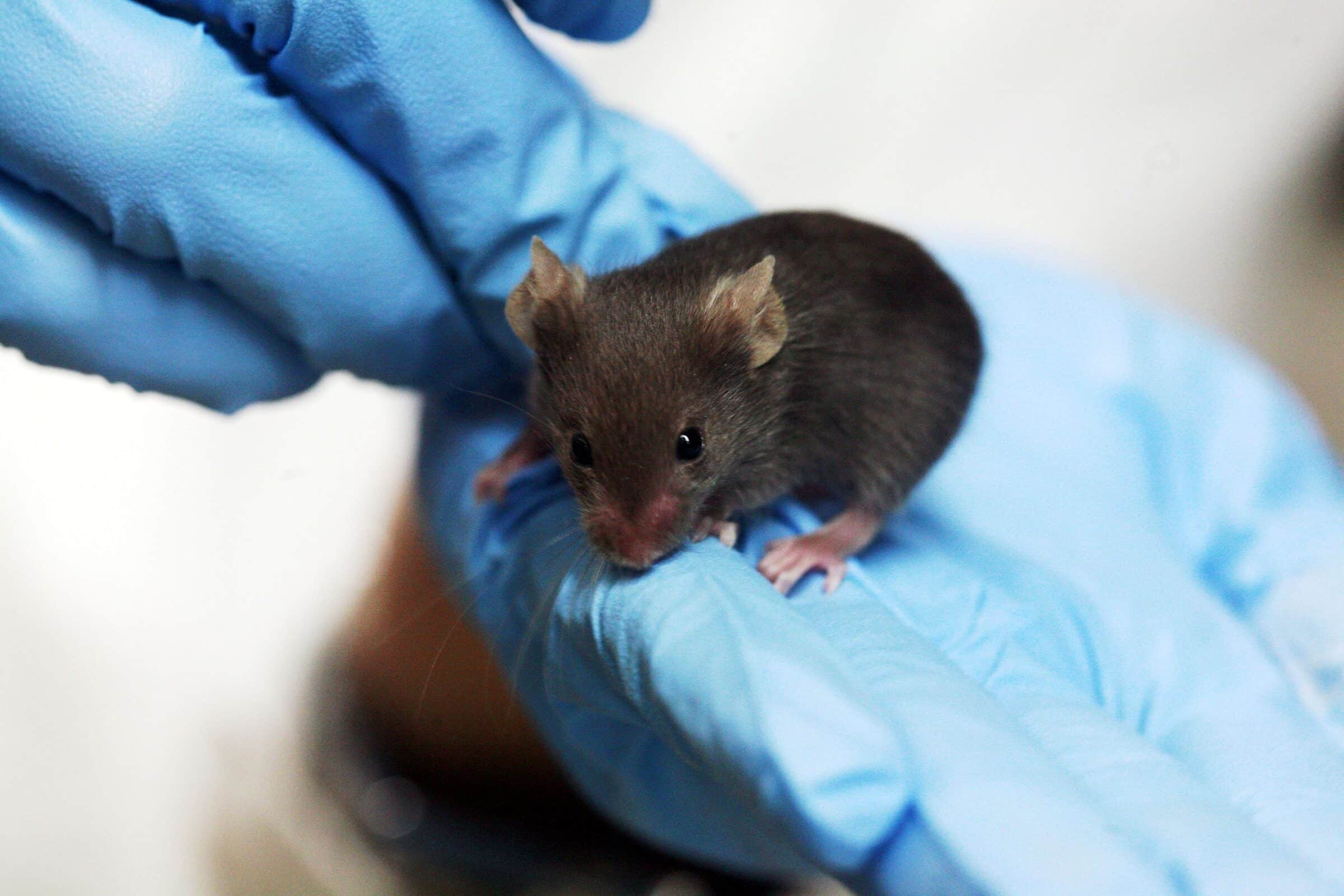 Life Sciences
Life Sciences
 Neuroscience & Mind
Neuroscience & Mind
Sleeping Mice Show How the Brain Lays Down Memories

Studying mice navigating a maze, New York University neuroscientist György Buzsáki and colleagues may have found a mechanism by which brains select which memories to keep:
Neuroscientists have established in recent decades the idea that some of each day’s experiences are converted by the brain into permanent memories during sleep the same night. Now, a new study proposes a mechanism that determines which memories are tagged as important enough to linger in the brain until sleep makes them permanent.
NYU LANGONE HEALTH / NYU GROSSMAN SCHOOL OF MEDICINE. “MECHANISM FOUND TO DETERMINE WHICH MEMORIES LAST.” SCIENCE DAILY.
The untagged information is presumably forgotten so it cannot become permanent in sleep.
The way the researchers think it works is that large groups of neurons in the hippocampus, the brain’s memory area, all fire together in rhythmic cycles. The sequences of signals they create, milliseconds apart, can encode complex information. The researchers call them “sharp wave ripples” because that’s the shape they assume when electrodes capture their activity, as recorded on a graph.
While past studies had linked ripples with memory formation during sleep, the new study, published online in the journal Science on March 28, found that daytime events followed immediately by five to 20 sharp wave-ripples are replayed more during sleep and so consolidated into permanent memories. Events followed by very few or no sharp wave-ripples failed to form lasting memories…
Importantly, sharp wave-ripples are known to be made up the firing of hippocampal “place cells” in a specific order that encodes every room we enter, and each arm of a maze entered by a mouse. For memories that are remembered, those same cells fire at high speed, as we sleep, “playing back the recorded event thousands times per night.” The process strengthens the connections between the cells involved.
NYU LANGONE HEALTH / NYU GROSSMAN SCHOOL OF MEDICINE. “WHICH MEMORIES LAST.”
How Did the Researchers Know Mice Were Learning or Remembering?
At The Scientist, Mariella Bodemeier Loayza Careaga explains,
Despite being considered the most synchronous events that occur in the mammalian brain, neurons that participate in SWR fire in sequence. The researchers exploited this feature to examine the role of awake SWR on the selection of events. Since awake SWR emerge when the brain is idling, the team allowed the mice to take a break from the task by providing a water reward every time they concluded a trial in the maze. When the researchers looked at the SWR that emerged during the reward, they found that the neuronal firing sequence contained in those SWR was most similar to the firing sequence seen in the last five runs of the maze.
The team next investigated the relationship between these awake SWR and the ones that occur during sleep. They discovered that the neuronal firing patterns seen during the sleep SWR resembled those observed during the awake SWR. “[Sleep SWR] are replaying mostly those events that were marked by the waking sharp waves,” said Buzsáki.
MARIELLA BODEMEIER LOAYZA CAREAGA, “HOW THE BRAIN SELECTS WHAT EXPERIENCES TO KEEP,” THE SCIENTIST, JULY 3, 2024
From the paper’s summary:
In everyday life, there are many potential events to be remembered. However, only a small fraction are retained. Simultaneously recording large numbers of neurons from the hippocampus, Yang et al. found that their population activity differentiated not only the position of the animal in a maze but also the exact trial number in a memory task.
WANNAN YANG ET AL. ,SELECTION OF EXPERIENCE FOR MEMORY BY HIPPOCAMPAL SHARP WAVE RIPPLES. SCIENCE383,1478-1483(2024).DOI:10.1126/SCIENCE.ADK8261 THE PAPER IS NOT OPEN ACCESS.
Why Sleep Matters
The research is helping to establish one reason that we need sleep. As Yasemin Saplakoglu reports at Wired,
It also provides neurological reasons why rest and sleep are important for retaining information. Resting and waking brains seem to run different programs: If you sleep all the time, you won’t form memories. If you’re awake all the time, you won’t form them either. “If you just run one algorithm, you will never learn anything,” Buzsáki said. “You have to have interruptions.”
During those interruptions is when the fireworks go off.
YASEMIN SAPLAKOGLU, “HOW THE BRAIN DECIDES WHAT TO REMEMBER, WIRED, JULY 7, 2024
Saplakoglu suggests that it might be possible one day to disrupt the ripples as a treatment for post-traumatic stress disorder.
As we learn more about memory, it takes a while to even process what we are learning.
Cross-posted at Mind Matters News.

